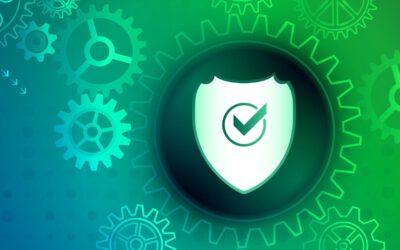It was October 1969, and I had just graduated from high school in Atlanta, GA, in June. I was a young, skinny kid at the age of 18 and hadn’t given a thought about my future or what I might be doing even a year from then. Like every young man, my focus was on going to college and my girlfriend, maybe not in that order. As most of us know, the Vietnam War was going strong and the whole country was reeling. Even young college students were protesting the war all over the US. Each night on the TV, the only three networks available at that time would broadcast the body counts of our service men and the enemies who were killed in action that day. Not an uplifting time to be fresh out of high school looking at the future.
At that time, the country had a lottery-based draft system to determine who would be called up to serve our country. Your birthday was assigned a number from 1 to 365, then picked in random order. That year, the military would take the first 180 picks or so. The night of the lottery, my birthday came up as lucky number 16. My best friend’s number came up just few behind mine. Ironically, that lottery made neither of us feel lucky, as we were going to be drafted into the army. However, we had other plans. The next day, we both went down to the recruiting office on Peachtree Street in downtown Atlanta. We spoke to recruiters from the air force, navy, coast guard, and marine corps, and each branch made us feel as if they were dying to have us enlist.
People often ask, “Why did you choose the marine corps?” And it wasn’t because we wanted to “be all that you can be.” There were no inspiring commercials on TV making military service look exciting, nor did we think that we were some kind of badasses. It was simply that the marines only wanted three years of our life. All of the other service branches wanted four or seven years. Besides, I didn’t want to wear the navy’s blue bellbottom uniforms, and the air force wasn’t going to let me fly an F-4 Phantom jet. My father was in the army corps of engineers and spent his time fighting in the Pacific during World War II. His job included clearing mine fields and forward operations, meaning he experienced being among the first to face the enemy. We didn’t consider the army because my buddy and I lived the army life every day when our fathers served.
On to Paris Island, SC – marine corps boot camp, where we went to begin our commitment. For the next 8 months, we would spend 10 weeks in boot camp, followed by 10 weeks in specialized battle-field instruction called ITR (individual training regiment) in Camp Lejeune, NC. The remaining training time would be in jungle warfare instruction in Camp Pendleton, CA. That is not a lot of time for a young man to be transferred from a “wet behind the ears” kid to a fighting machine protecting our way of life. However, the corps did make that transformation. Consider this: In 1970, most combat marines were barely out of high school. In fact, if a fellow marine was in his mid to late 20s, he was considered an old man. My training to become that marine was completed in July of 1970. Shortly after that, I was shipped out to Vietnam and my buddy was shipped back to Camp Lejeune, never to serve together again.
A normal tour of duty lasted 12 to 13 months. That’s a long time for service men and women not to hear a loved one’s voice or even know what’s going on back home. Back in 1970, communication was not like what we enjoy today. There was no internet or cell phones at that time. If you were lucky enough to find a phone that could reach an overseas operator, it would cost over $30 a minute, and by today’s costs it might be closer to $150 a minute (just guessing). Considering that my take-home pay was $125 a month with $15 hazardous duty pay, I couldn’t afford to call home. Now we often joke about “snail mail,” but in 1970 an oversea letter took about two weeks to reach us. Mail call ended up being the most important part of your day, as we had no way of knowing what was going on back in the States unless we read it in our letters from home.
Thinking back, I saw and experienced things that no 19-year-old should have to, but I still have no regrets. I got the pleasure of meeting real heroes, and I’m very proud to say they were great friends. Like most veterans who served in any war, I lost several close buddies of mine, two of whom I had grown up with in grade school, played sports with, and attended high school with. They didn’t want to be heroes either. They had the same desires to do their job and get back home to their loved ones. Those were the real heroes. Neither got see their nineteenth birthday.
Life went on for me. My father passed away while I was serving, a little over halfway through my tour. The marine corps shipped me home in time to attend my father’s funeral, the day after I got home. My father was honored with a military funeral and was buried in a veterans graveyard in Forest Park, GA. His funeral was attended by more generals and high-ranking officers than I ever got to see as a marine.
I was standing beside my mother at the grave site in full uniform when the first general stopped by to pay his respects to my mother. I saluted him as any marine or soldier was trained to do. The general politely returned my salute and said, “Son, you don’t salute us; we salute you and your father’s service to our country.” To say I was proud of my father and myself for being a marine is an understatement.
After the funeral, I served the remaining months of my enlistment at the 6th Marines Notification Center located in downtown Atlanta. The primary role of that office was to notify the next of kin for fallen Marines in the southeastern US. A crappy job if there ever was one. I ended up on call at the headquarters office the following Christmas. My sole job was to man the phones and wait for that call. The best gift I received that Christmas was that the phone never rang.
I finished my time with the corps the following year. Most veterans don’t talk a lot about the time they served, but it’s never far from our thoughts. It’s been many years since I wore uniform as a marine, but as they say, “Once a marine, always a marine,” and that holds true to this day. Today I am thankful for the experience that I had as a marine, for being the son of an army veteran, and, like all veterans, for the privilege of serving our country in times of war and peace.
We are free today because veterans, both men and women, chose a path that not everyone wants to walk down. To all veterans across this wonderful country, every day I personally salute you. Especially on Veterans Day. You have kept America safe, and the sacrifices you and your families have made have always kept America great.
Blessings to you and yours this Veterans Day!





